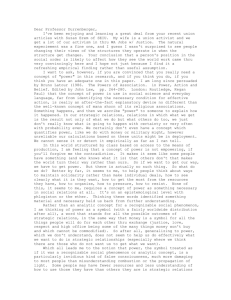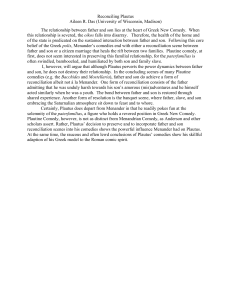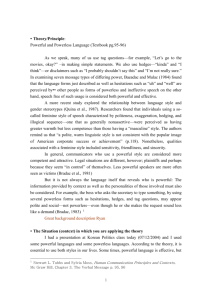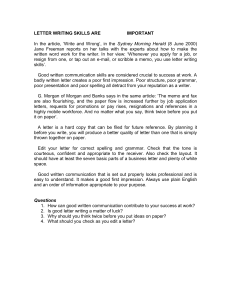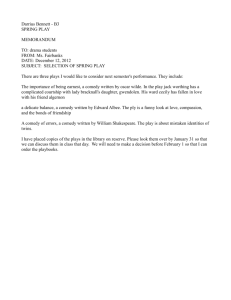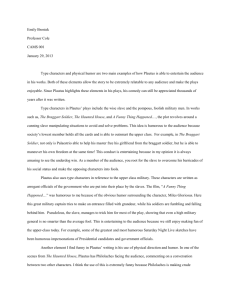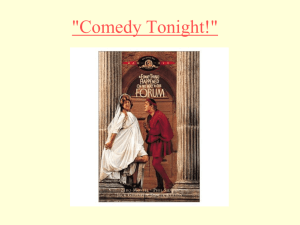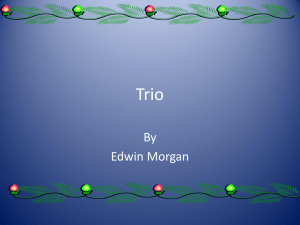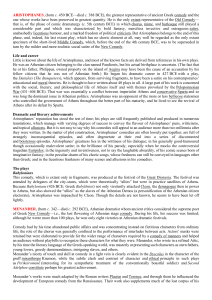Women and the Language of Power in Roman Comedy
advertisement
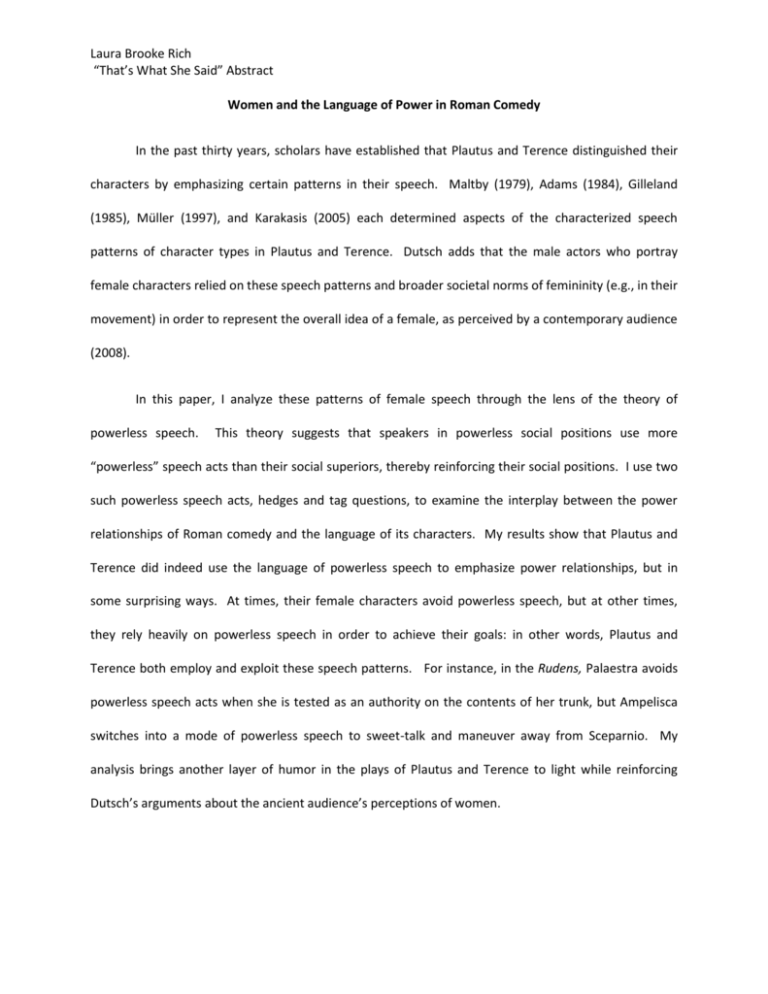
Laura Brooke Rich “That’s What She Said” Abstract Women and the Language of Power in Roman Comedy In the past thirty years, scholars have established that Plautus and Terence distinguished their characters by emphasizing certain patterns in their speech. Maltby (1979), Adams (1984), Gilleland (1985), Müller (1997), and Karakasis (2005) each determined aspects of the characterized speech patterns of character types in Plautus and Terence. Dutsch adds that the male actors who portray female characters relied on these speech patterns and broader societal norms of femininity (e.g., in their movement) in order to represent the overall idea of a female, as perceived by a contemporary audience (2008). In this paper, I analyze these patterns of female speech through the lens of the theory of powerless speech. This theory suggests that speakers in powerless social positions use more “powerless” speech acts than their social superiors, thereby reinforcing their social positions. I use two such powerless speech acts, hedges and tag questions, to examine the interplay between the power relationships of Roman comedy and the language of its characters. My results show that Plautus and Terence did indeed use the language of powerless speech to emphasize power relationships, but in some surprising ways. At times, their female characters avoid powerless speech, but at other times, they rely heavily on powerless speech in order to achieve their goals: in other words, Plautus and Terence both employ and exploit these speech patterns. For instance, in the Rudens, Palaestra avoids powerless speech acts when she is tested as an authority on the contents of her trunk, but Ampelisca switches into a mode of powerless speech to sweet-talk and maneuver away from Sceparnio. My analysis brings another layer of humor in the plays of Plautus and Terence to light while reinforcing Dutsch’s arguments about the ancient audience’s perceptions of women. Laura Brooke Rich “That’s What She Said” Abstract Works Cited: Adams, J. N. 1984. “Female Speech in Latin Comedy.” Antichthon 18: 43- 77. Dutsch, D. 2008. Feminine Discourse in Roman Comedy: On Echoes and Voices. OUP. Gilleland, M. E. 1979. Linguistic Differentiation of Character Type and Sex,” UVA PhD dissertation. Karakasis, E. 2005. Terence and the Language of Roman Comedy. CUP: New York. Maltby, R. 1979. “Linguistic Characteristics of Old Men in Terence,” CP 74: 136- 47. Müller, R. 1997. Sprechen und Sprache: dialoglinguistische Studien zu Terenz. Universitätsverlag C. Winter: Heidelberg.

